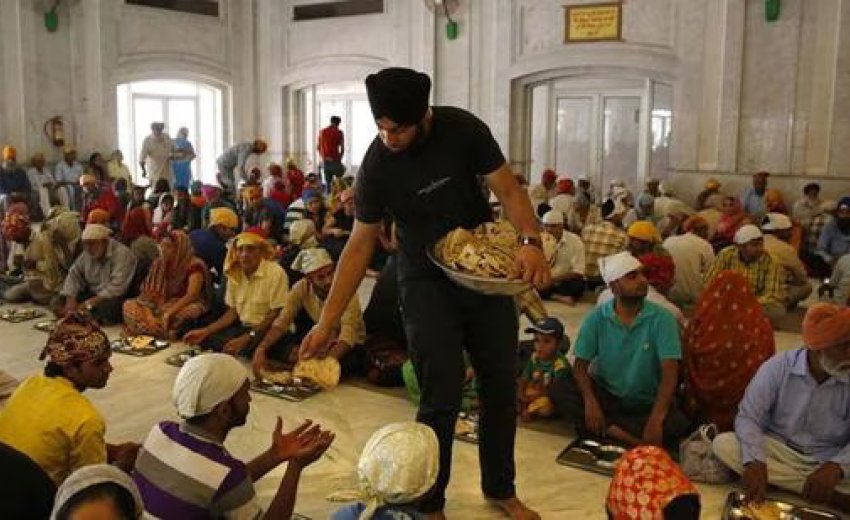Seva, which means selfless service, is central to Sikhism. It can be practiced anywhere and in many ways, with the sole purpose of helping others.
As summer arrives, it’s common to see Sikhs handing out chilled rose milk to people on the streets during hot afternoons.At a time when even drinking water can be costly, they offer this refreshing drink for free. They set up temporary stations across Delhi, working tirelessly to reach as many people as possible. With smiles on their faces, they serve glass after glass to pedestrians, rickshaw pullers, two-wheeler riders, and anyone with a dry throat. They do this without expecting anything in return, without any discrimination, and without any sense of superiority.
This same spirit of selfless service is also evident in the gurudwaras, the Sikh places of worship. There, you can see middle-aged, well-off men cleaning the floors, and women in fine clothes making chapatis in the kitchen for the langar. The langar is a communal meal where everyone, regardless of caste, class, or religion, is welcome. Children run around with buckets of dal, serving anyone whose plate is empty. They work in the gurudwara with the same dedication and sincerity as they would at home, serving their close friends and family.
Seva: The essence of humanity in Sikhism
The concept of ‘seva’ or service drives this dedication to helping others. ‘Karseva’ means selfless service, done without any expectation of reward. The goal is simply to serve, to bring joy or relief to someone else, and to help those in need. This spirit is clearly visible in the way Sikhs devote themselves to community work like this.
Seva, which means selfless service, is central to Sikhism. It can be practised anywhere and in many ways, with the sole purpose of helping others. There are inspiring stories of Sikhs removing their turbans to save people from drowning while others stood by. Sikhs have also set up community kitchens, known as langars, in war-torn areas like Syria to feed refugees in need.
One of the most admirable aspects of Sikhism is its belief in equality. There are no caste distinctions in the faith, which was a radical idea when caste was a major social barrier. In those times, lower castes, or Shudras, faced severe discrimination and cruelty from the upper castes. Unfortunately, the caste system is still present in the country today. The Sikh community has produced some of the bravest soldiers and athletes. This isn’t to say that other communities lack courage or dedication, but in Sikh culture, the drive to serve and help others is particularly strong.
While some wealthy groups seek special privileges, religious extremists try to ban women from entering temples, and restaurants deny entry to underprivileged children (as seen in a recent incident in Connaught Place), Sikhs continue to restore our faith in humanity. Their actions remind us that there is still hope for a better world.
*based on an article by Nishi Jain, published in mensxp.com on 17th June 2016

